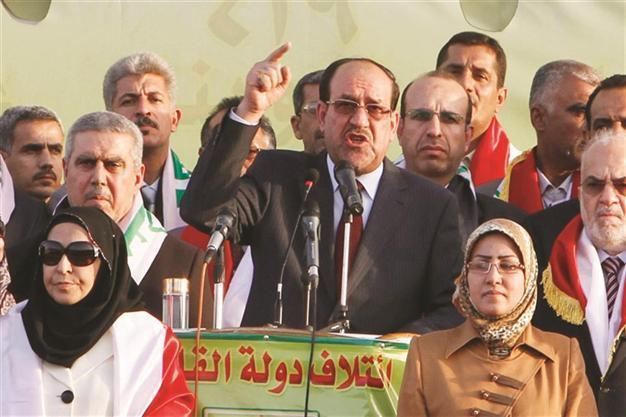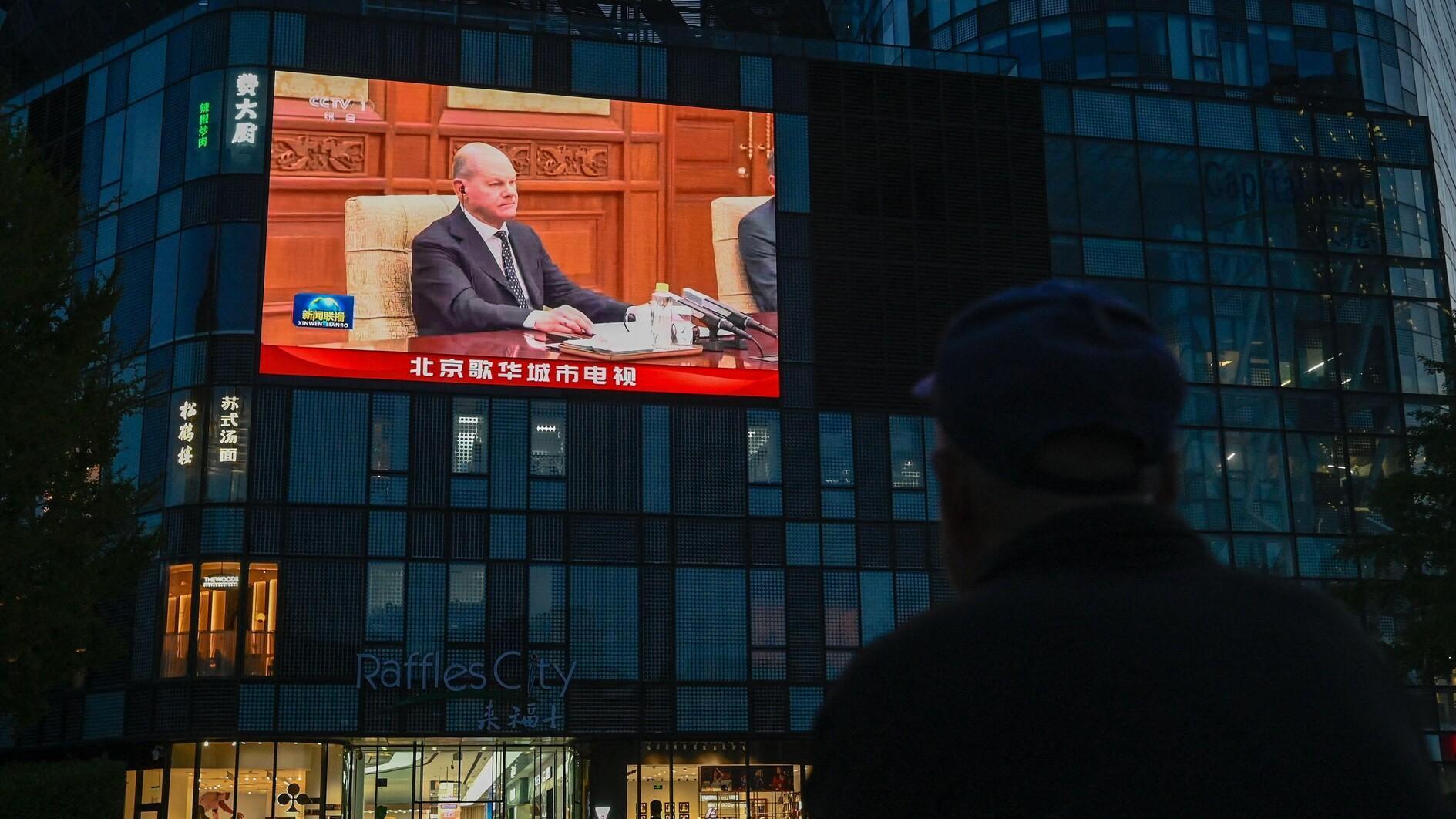Iraq Cabinet weakens as violence escalates
BAGHDAD

Iraqi Prime Minister Nouri al-Maliki (C) is surrounded by his political bloc as he makes an election speech during his campaign in Basra in this photo. Kurds and Sunnis are at loggerheads with the Shiite premier over various issues. AFP photo
Iraqi Deputy Prime Minister Saleh al-Mutlaq announced yesterday his resignation over deadly clashes that rocked the country a day after Shiite Prime Minister Nouri al- Maliki has escalated a crackdown on Cabinet ministers, naming temporary replacements for the country’s foreign and trade ministers, both of whom are Kurds, in the latest sign that politics is heading toward a deadlock amid deepening ethnic conflict and spiraling daily violence.Saleh al-Mutlaq announced his resignation in protest to the latest violence that killed 110 people. Adding to woes, Deputy Prime Minister Hussein al-Shahristani will temporarily replace Foreign Minister Hoshyar Zebari, as Justice Minister Hassan al-Shammari is to take charge from Trade Minister Khayrullah Hassan Babaker. Kurdish ministers have been boycotting Cabinet meetings since early March over disagreements about the federal budget. The ministers were replaced after being given compulsory leave by al-Maliki.
The Kurdistan Regional Government (KRG) and the central government are at odds over issues including a swathe of disputed territory in north Iraq, oil contracts the region has signed without Baghdad’s approval, and power-sharing.
The rift between al-Maliki and the Kurds is not the only headache. Since the last U.S. troops left in 2011, Iraq’s government has been mired in crisis over a power-sharing agreement along sectarian and ethnic lines between Shiite Muslims and Sunnis. Many Iraqi Sunnis say they were sidelined and allowed the Shiite majority to gain power.
On April 23, two Sunni members of the Cabinet resigned over deadly clashes. Education Minister Mohammed Ali Tamim and Science and Technology Minister Abdulkarim al-Samarraie said they were quitting their posts to protest the violence against protesters. The violence on April 23 broke out before dawn when security forces entered an area where demonstrations have been held since January near Hawijah, in Kirkuk. The revenge attacks continued yesterday, spreading to Suleiman Bek, Mosul, Salahaddin and Ramadi districts and left 15 people dead across Iraq. The fighting was the bloodiest Iraq has seen since thousands of Sunni Muslims started staging protests in December to demand an end to the perceived marginalization of their sect by Prime Minister al-Maliki’s Shiite-led government, increasing worries that Iraq could slide back into widespread sectarian confrontation. Two days of violence in Iraq have killed 110 people, 92 of them in clashes and attacks involving security forces, protesters and their supporters, officials said yesterday.
Six posts in total
The resignations bring the number of ministers to leave the Cabinet since March to four. Agriculture Minister Ezzedine al-Dawleh quit on March 8 after a protester was killed in north Iraq, and Finance Minister Rafa al-Essawi, a Sunni, some of whose bodyguards were arrested on terrorism charges in December, announced his resignation at an anti-government rally on March 1. The arrest of al-Esawi’s guards came a year after al-Hashemi’s guards were arrested and accused of terrorism.
Amid the ongoing crisis, Iraq held the provincial elections last weekend which was seen as a test for al-Maliki ahead of the parliamentary elections due next year. However, there were no elections in the three provinces of the KRG in the north. The region runs its own elections separately at different times.
The government also postponed the election in two Sunni provinces, Anbar and Nineveh, due to lack of security.
















